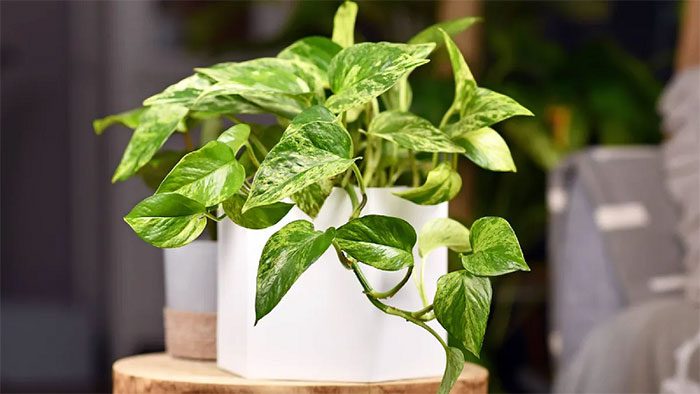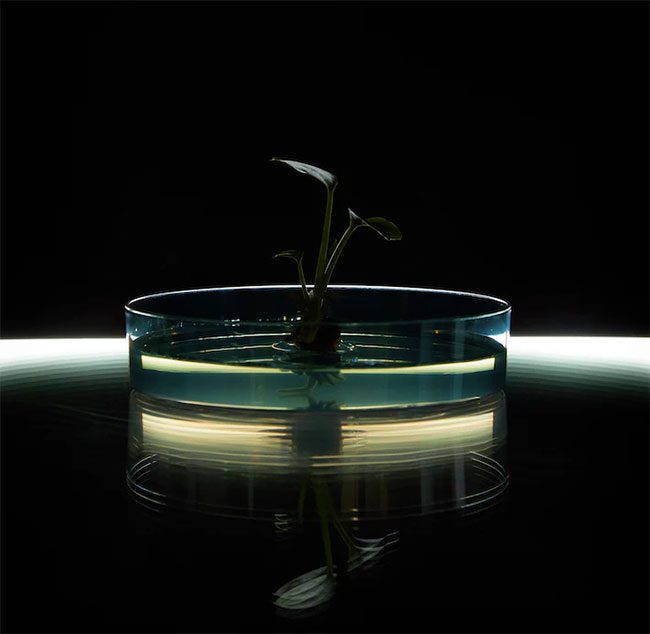Indoor plants can boost mood and reduce anxiety for those suffering from depression or seasonal anxiety.
Now, the Paris-based startup Neoplants has designed a type of plant that can literally clean the air.
Neoplants decided to explore the plant kingdom because they wanted to purify the air without using electricity. This initiative is primarily driven by sustainability, environmental friendliness, and the ability to indefinitely recycle pollutants.
Meanwhile, the public is becoming increasingly concerned about air quality. Molecular biologist Patrick Torbey, also the Chief Technology Officer of Neoplants, noted that one impact of the Covid-19 pandemic has been that people are more aware of what is in the air they breathe.
Furthermore, wildfires are becoming more severe due to drought and climate change. Rising temperatures have also made indoor air quality a top priority for millions of affected individuals.

Pothos plants can be genetically modified to filter air better. (Photo: iStock).
Thus, by providing a green air filtration system that does not require electricity, Neoplants hopes to eliminate both pollution and stress from homes.
Advantages of Plants
Neoplants aims to harness the natural air-purifying properties of plants and turn them into powerful air purifiers. By genetically modifying the Pothos plant (Epipremnum aureum) and its root microbiome, Neoplants has created an organism that they claim can do the work of 30 air purifiers. This cutting-edge product is called Neo P1 and has just hit the market.
Volatile organic compounds (VOCs) are chemicals commonly found in items such as paints, cleaning supplies, building materials, and pesticides. As a result, they tend to be prevalent in the air, both indoors and outdoors, and are harmful to human health.
VOCs are known to cause headaches, eye and throat irritation, and can even lead to liver damage or cancer. The problem is that most VOCs are very small molecules, making them extremely difficult to remove from indoor air using mechanical filters.
Even molecules large enough to be filtered are simply removed and re-released elsewhere, rather than being neutralized or completely eliminated.
However, plants have an advantage over HEPA (High-Efficiency Particulate Air) filters: the small size of plants means that VOCs can be relatively easily absorbed and transformed by green plants.
While a 1989 NASA report stated that plants could clean air in closed environments, more recent studies have shown that plants have only a modest impact on removing pollutants.
Meanwhile, according to Neoplants’ research team, simply adjusting the plants’ metabolism slightly can accomplish the task. Lionel Mora, co-founder and CEO of Neoplants, stated: “We started with one of the most popular houseplants in North America, the Pothos. Neoplants mapped the entire genome of this plant and then identified which genes are necessary to maximize VOC filtration.”
Eliminating 4 Indoor Toxins
After nearly four years of continuous work, Neoplants engineers have finally created a plant capable of metabolizing four main indoor air pollutants, including formaldehyde and toluene. This customized plant can even absorb some VOCs, such as the carcinogenic benzene found in wildfire smoke.
However, the real breakthrough came from modifying the microorganisms living in the plant’s roots. The research team inserted genes from extremophilic bacteria, which thrive in harsh environments by consuming toxic chemicals, into the symbiotic bacteria in the Pothos roots. This modification enhanced the Pothos plant’s ability to metabolize pollutants.
To ensure that the genetically modified plants comply with the standards of the U.S. Food and Drug Administration (FDA), the engineers carefully avoided altering parts of the genome that enhance the plant’s survival in nature. According to Patrick Torbey, they did not create a selective advantage for the plant, nor did they cause it to grow faster or increase its pesticide resistance.
Helping Combat Climate Change

A Neo P1 seedling from Neoplants. (Photo: Neoplants)
Currently, Neoplants products are priced relatively high. The Neo P1 plant costs $179, significantly more than most regular household appliances (although comparable to many mechanical air purifiers). While the company currently offers only one type of plant, Neoplants is looking to develop more VOC-filtering plants in the future.
Additionally, Neoplants leaders hope to advance their ambitious plans to help combat climate change. While plants naturally absorb excess carbon dioxide from the air through photosynthesis, the research team believes they can enhance the photosynthesis process with the help of genetic engineering.
Engineers could modify plants to capture and store more carbon than they would naturally. This could become a significant strategy in mitigating climate severity.


















































